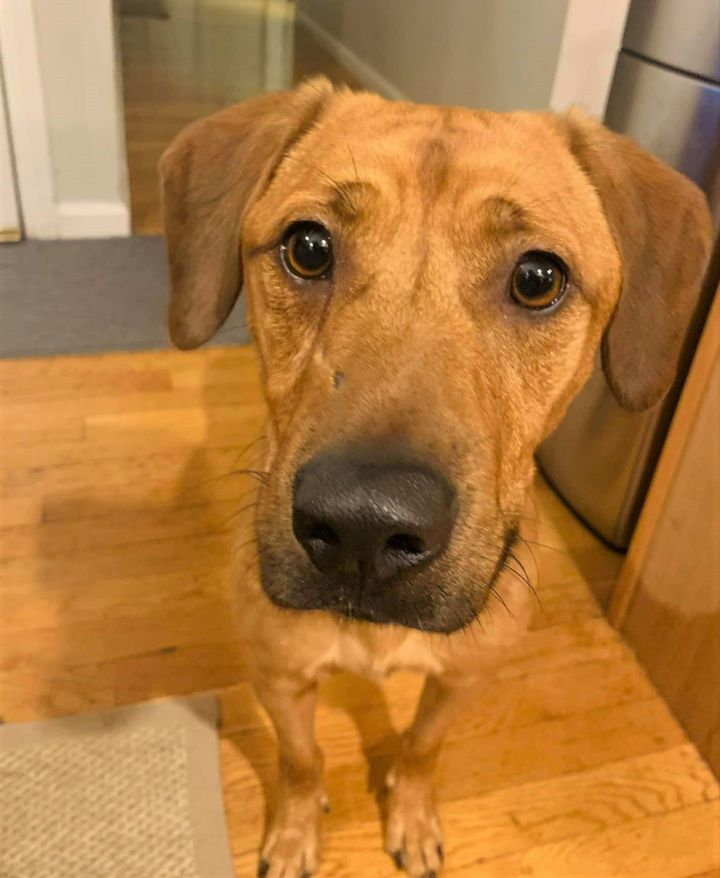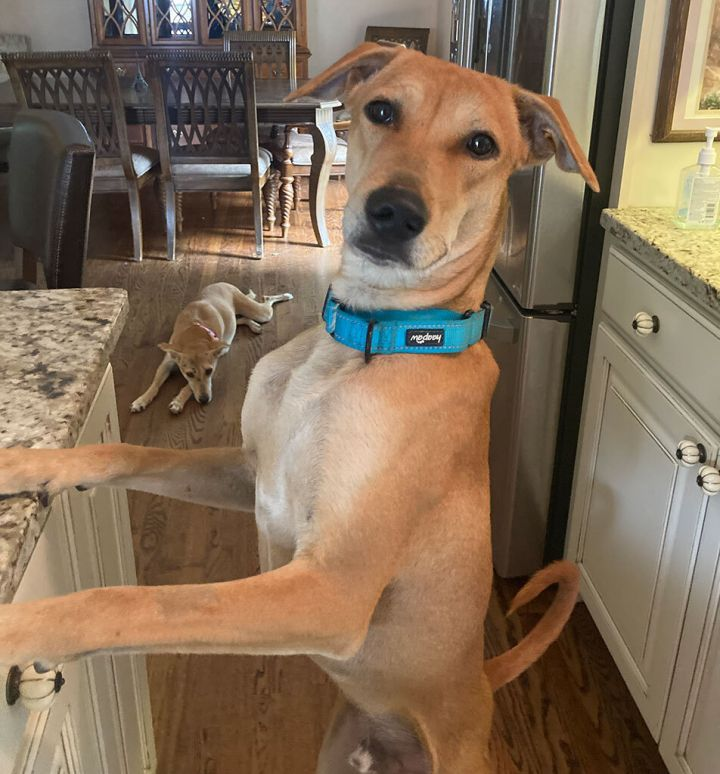My parents were a little too old to be hippies and a little too decent to have been beatniks, but they did believe in the educational value of travel. Let's just say that that slot on my bingo card was full before I was old enough to vote. I lived in fear of the'rents' wanderlust. There I'd be, looking forward to a nice quiet vacation on the little farm that wasn't producing anything yet, wondering which new books I was going to discover in the town library and which relatives were going to visit us, and Dad would burst out at dinner, "We've never ridden across Canada yet!" And then for several days the possibility of spending the summer in a rented van, or on a Greyhound, breathing stale air and trying not to be sick, just to be in a different place, would loom over the whole vacation. Mother was good at dampening ideas about spending a year in Australia but she was more likely than Dad to pipe up with equally vacation-ruining ideas about getting to know relatives in Denver, or maybe Hawaii.
On one of these junkets the parents had rented a house and sent us children out to explore the neighborhood from a kids'-eye view. We walked a mile or two away from our rented base, and as we walked back a large dog who had barked peaceably at us, on the way into town, bounded out of a front yard and came lolloping behind us.
"Maybe he's a stray and he can be our dog," my brother said hopefully, putting his arm around the dog, who wagged and wriggled at this attention.
I didn't think the dog was a stray. "He looked awfully comfortable at that house. We'd better stop and ask the people who live there if he's their dog."
"He looks awfully comfortable with me too," my brother said, as we concluded that, though people seemed to be living in the house, none of them was at home. It was true. Anyone would have thought the dog had lived all his life with us.
Anyone but our parents. "Where did you get that dog?"
"He was lying on the porch of #123 Pine Street when we went into town, and then he followed us home." I didn't have to mention that this behavior had seemed to be encouraged by the petting and praising the dog was getting just for sticking close to my brother. So I didn't. The'rents had their own eyes to see such things.
"Well, come in and have supper, and then you can walk back to #123 Pine Street and see if he'll stay there, now that he's satisfied his curiosity and seen that there's nothing for him to eat here. He's a temporary dog."
There was no meat, because we were mostly vegetarians, but there was cornbread. We seldom did let Mother's cornbread get cold. Both of us had pockets.
"Here, Temporary!" The dog recognized good cornbread when he smelled it, and followed my brother around the yard. "Temporary, sit down." The dog sat. "Come on, Temporary, heel." The dog walked at my brother's heel. "Can you shake hands? Roll over? Beg?" The dog seemed to have had no higher education.
"That's enough! Somebody must be worried about that dog! Take it back to Pine Street now!'
We went back to Pine Street. The dog didn't have to be told to follow.
"Sam!" A nice lady was in the front yard at #123 Pine Street. We explained that we had not intended to dognap her Sam, but if she ever got tired of Sam we would like to have him back.
"He is a nice dog, but he's not very smart," she told us. "He follows people, bicycles, cars. He's likely to get run over."
For the rest of our stay in that town we were careful not to call or encourage Sam to follow us, but he always seemed ready to follow if encouraged. I heard my brother refer to him as "our Temporary Sam" and "good ol' Temporary Sam."
But before we left that town, the big lovable dog started walking with a bad limp. "He ran out chasing a a car, and it stopped at a light. You might say he caught it," said the nice lady.
It was a different time. It did not occur to us children to question how an adult treated her dog. It would not have occurred to our parents, either. Obviously Sam's job was to rush out at anyone who invaded the yard, looking big and dangerous, even if the greatest danger was that he'd knock down someone whose face he was trying to lick. Anyway the yard had a fence around it. The fence was not all of three feet high. Before his injury Sam could jump four feet without even trying.
Now, of course, most towns have actual laws. Retrievers are big enough to be dangerous--mostly to smaller pets. They tend to be gentle, amiable dogs. A few things, like their names and "Let's go" and "Come here," they learn easily; things that fit into their mental scheme of life. Other ideas, like "By 'heel' I mean stay at my heel even if there are squirrels to chase" and "Stay out of that filthy water" and "Don't roll on that stinky, maggoty roadkill!" do not fit naturally into the retriever brain and are extremely difficult to teach. Even after being hit and hurt some retrievers' instincts may continue to tell them to gallop companionably after passing cars.
Marley and Me was about a golden retriever. The Book of Barkley was about a Labrador retriever, a closely related breed. They're called retrievers because one trick they learn easily is, if they see a duck or anything else hit water, to dive in and retrieve it and bring it back to their human, in their mouths, without even messing up its feathers. They love swimming and have to be dragged past water unless they're allowed to dive in. Their other specialties include eating things no reasonable animal would eat, and being sick, and galloping about and running into people, and dripping on rugs. They seem to stay puppies forever. They are very friendly and easy to bond with if you choose one as your new (used) dog.
Any new (used) dog can be a source of joy, as this photo essay shows...
There's a reason why retrievers are often, why try to be tactful about it, sold, apart from the fact that most of them are so good-natured they'll enjoy new human companions as much as they did the old ones. They know a difference but they don't seem to hold grudges. But, beyond that, they are fairly large, impulsive, messy dogs. If you want a dog who will walk with you past a watercourse and not jump into the water, climb out through the muddiest possible edge of the water, and shake water, mud, and loose hair onto you, you might want a different breed. Most retrievers just love to get wet, partly because of the weight advantage it gives them in deciding where they and the humans at the other ends of the lead should go. Lifting a wet, wiggly retriever is a special experience; in this case "special" does not mean "tidy" and people with bad backs should probably look for smaller dogs. And big dogs need a lot of food, some of which has to be of animal origin.
And also, it's not that they're not protective--they can be--but a problem for some people is that retrievers aren't over-protective, don't see every visitor as a threat. To them the friendly repo man who's there to take the car away, or policeman with a warrant for someone's arrest, is just another visitor. They expect a party, with exchanges of food that may include things they can eat, to ensue when they lead these wonderful new people to meet their humans. Their barks say "What fun!" and if they do grab someone's arm, their renowned "soft," sensitive mouths make it obvious to the person grabbed that they're showing affection. They're more likely to chomp their own humans than an unwelcome visitor. Retrievers can bite, seriously, but they seldom do.
However, if you let yourself bond with a retriever, you'll agree that the worst thing about them is that their life expectancy is only about ten years. Though they tend to be extroverts who like any human who puts up with them, they do get to know and love their own humans.
There's no guarantee that these adoptable dogs are Golden as distinct from Labrador or Chesapeake Bay retrievers. All three breeds are closely related, with similar looks and personalities, though golden retrievers are sometimes considered the most puppylike, and black ones are more likely to languish in shelters (because they fade into the shadows and attract less attention). These are just retriever-type dogs with yellow coats.
1. Zipcode 10101: Zeke from North Carolina Is Currently Staying in New York
Despite that "Old dogs, and children, and watermelon wine" vibe, Zeke is just a pup, about a year old at the time his web page (https://www.petfinder.com/dog/zeke-nc-52584698/ny/new-york/rescue-dogs-rock-nyc-ny1274/) was last updated. He was moved to New York for treatment for life-threatening gunshot wounds. In his peculiar case, this web site agrees that it's probably a good thing if his new home is hundreds of miles away from his old home. Retrievers don't form prejudices and seldom hold grudges, but there are things even they probably remember. With humans who are not trying to kill him Zeke is described as "a snugglebug" who welcomes friendly attention. He is a follower, recommended to families with a confident, well trained senior dog. He has run up vet bills.
2. Zipcode 20202: Chimmu from India Is Currently Staying in Maryland
He was a street dog, according to his web page (https://www.petfinder.com/dog/chimmu-courtesy-post-52710440/md/bowie/spca-humane-society-of-prince-georges-county-md-md21/). Good Hindus never abuse animals but the ones who are not earning their keep on farms can be badly neglected. Chimmu's mother was noticed fighting over food for her puppies. The puppies were rescued and Chimmu was brought back to Maryland with his foster human. Young and teachable (not two years old yet), he's quickly adjusted to being a house pet. He seems to be another beta dog, most likely to learn rules or commands by following the example of a senior dog.
3. Zipcode 30303: Champ from Cumming
The bad news: If you visit his web page, https://www.petfinder.com/dog/champ-11973-58701434/ga/cumming/furkids-animal-rescue-and-shelters-ga170/, you'll see that Champ is very thin for a retriever. And this is not because he's still growing, like the pups above. He's been ill and will need to keep reporting to his vet for treatment for a while. The good news: Because the shelter is eager to move him and his vet bills to a new home, his adoption fee is low. relative to the market rate. He's described as a typical retriever, well trained in some ways with ample room for improvement in others, recommended to families with a nice fenced yard.



No comments:
Post a Comment